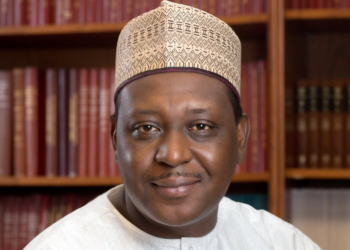Key highlights:
- Nigerian doctors said the proposed bill is counterproductive and does not address lingering issues in Nigeria’s health care system.
- They said they are not only leaving for money, citing issues ranging from Long working hours, poor pay, limited places for specialist training and a toxic work environment.
- The proposed bill is intended to fight the brain-drain in the health sector which is causing crises.
Nigerian Doctors practising in Nigeria and the Anglophone-Western diaspora have expressed displeasure with the newly proposed plan to ban Nigerian doctors who trained in Nigerian schools from leaving Nigeria until five years post-graduation.
The news of the plan caused uproar online as the Bill to Ban doctors passed second reading at the House of Reps on April 6th, 2023.
Nairametrics spoke with 2 practising Doctors, Felix and Ada (real names changed), who said doctors are leaving the doctors are leaving because medical practice in Nigeria has become increasingly unattractive; characterised by long working hours, poor pay and a limited place for specialist training.
How it started
Rep. Abdulganiyu Johnson (APC-Lagos) sponsored a bill at the House of Reps this month, which caused a stir when announced and condemned by young doctors in Nigeria.
He also revealed the bill was sponsored as a response to the rising manpower crisis in Nigeria’s health sector, he adds the bill was not meant to prevent anyone from travelling abroad and also not an attempt to impede human rights.
The bill seeks to mandate Nigeria-trained medical and dental practitioners to practice for a minimum of five years in the country before being granted full licenses passed the second reading in the House of Representatives on April 6, he said:
- “Our population is more than 200 million and the number of medical doctors we have is about 10,000. If care is not taken may be herbalists will have to take over and be treating our people.
- “We have a crisis already and how do we mitigate it? Let us increase the number of years they (doctors) will get their licenses and this is not to stop them from travelling abroad.
- “The five years include their national service and horsemanship period, which amounts to three years and it is a way of promoting professionalism. You can register for your residency and engage in hospital services.”
FG’s support
Despite the uproar against the bill, the FG’s Health regulatory bodies have also signalled support for the bill, as Nigeria’s Minister of Health, Dr Osagie Ehanire said the bill to ensure medical graduates work for five years before leaving Nigeria comes with good intentions.
The Minister noted that the bill was proposed with good intentions and mandates any Nigeria-trained Medical or Dental Practitioner to Practice in Nigeria for a minimum of five years before being granted a full license by the Medical and Dental Council of Nigeria (MDCN).
- “If I can read the mind of Johnson properly, he wants to be able to keep those who have studied here a bit longer for some time before they can be free to go.
- “If you look at the fact that the fees we pay at our universities, definitely do not make up for the cost of training.
- “If you want to know what it costs to train a doctor, go to a private university and know what they pay for school fees.
The Pushback
The Bill has already witnessed lobbied pushbacks from medical associations in the diaspora, as The Diaspora groups said the Bill is counterproductive and does little to address lingering issues in Nigeria’s healthcare.
In a letter sent to the Speaker of the House of Representatives, Rep. Femi Gbajabiamila, titled “Re: A Position Statement From Diaspora Medical Associations- Bill Seeking to Restrict Newly Qualified Medical Doctors and Dentists from Leaving Nigeria”, the groups said Diaspora Medical Groups revealed that the bill, which purportedly seeks a way to stem the brain drain in the health sector, may not be the most effective intervention to resolve the situation, adding it is counterproductive towards solving Nigeria’s health issues
The letter was signed by Dr Emeka Ugwu, the President, of the Nigerian Doctors’ Forum, South Africa, Dr Chinyere Anyaogu, the President, of the Association of Nigerian Physicians in the Americas, and Dr Chris Agbo, the President, of the Medical Association of Nigerians Across Great Britain.
Also, signatories to the letter include Dr Nnamdi Ndubuka, the President, of the Canadian Association of Nigerian Physicians and Dentists and Dr Al Amin Dahiru, the President, of the Nigerian Medical Association-Germany.
So why are Doctors against it?
Felix, a young doctor told Nairametrics that he would never offer to give up his passport to the FG no matter what, he added:
- “Contrary to popular opinion, doctors don’t want to leave Nigeria. It costs a lot of money to relocate to the US or UK. We’re talking $5000 to $15,000.
- “Plus sitting for multiple licensing exams to prove that your medical education was actually up to standard. Why would anyone go through this expensive and difficult process if things were working back home?
He added that Doctors are leaving because medical practice in Nigeria has become increasingly unattractive.
- “Long working hours, poor pay, limited places for speciality training and a toxic work environment. It’s not just about the money.
- “As a doctor, you want to feel as if your life has a purpose. That you’re advancing medical science and meeting patients at their point of need.
He added that most doctors will stay in Nigeria if the pay is good, using the UK for example, where he says salaries for doctors range from £28,000, right out of medical school to about £114,000 after a couple of years as a consultant, adding:
- “I don’t even think Nigerian doctors are asking to be paid half of that. So if we could earn 60% of what doctors earn in the UK, migration would come to a trickle overnight. Address problems in training, staffing and work-life balance and I don’t see how we won’t reverse the brain drain overnight.
Dr Ada, a Consultant with over ten years of experience in Nigeria’s Medical sector, also supported Dr Felix’s statement stating that medical students already pay a premium “with time, course difficulty, finding placements, poorly equipped teaching hospitals and overworked and owed salaries”.
She added that they are overworked and underpaid in the system, stating that “the people(politicians) who want to bring in the bill also do not use Nigerian hospitals, it is a very selfish bill and I hope it does not pass, doctors are stressed because working conditions are bad, that should be sorted first.”
Why Politicians are scared
With the UK formally leaving the European Union, the UK Government has opened up migration routes for skilled workers in Commonwealth English-speaking countries ( Nigeria, India, Pakistan), which saw Nigerian nationals emerged as the second-highest recipients of United Kingdom’s Worker Visas between December 2019 to June 2022.
Nigeria was only topped by Indian nationals whose recipients increased from 57,087 to 102,981 in the same period.
UK Government Worker Visa approvals increased from 113,555 in 2019 to 222,349 by the year ending, June 2022, a 96% increase, as Nigerian approvals had increased by 11,854, a 303% level change from 3,918 in December 2019 to 15,772 in June 2022, making Nigerians the second highest recipients.
Also, the “Worker” visa category which was previously known as the “Skilled worker” visa, includes sponsored visas which typically lead to settlement.





















